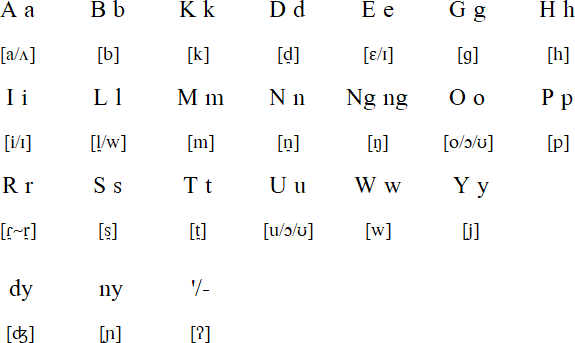Cebuano is a member of the Philippine branch of Malayo-Polynesian language family. It is spoken in the Philippines, mainly in the Central Visayas region by the Bisaya people, and is also in northeastern parts of Negros Occidental province, in southern parts of Masbate, in most of Leyte and Southern Leyte, in western portions of Guimaras, in parts of Samar, Bohol, Luzon, the Biliran islands, and in most parts of Mindanao. It is used as a lingua franca in Central Visayas and in parts of Mindanao. In 2010 there were about 22 million speakers of Cebuano.
The language is named after the island of Cebu, where the prestige register is spoken, and is also known as Bisaya, Sebuano, Sugbuanon, Sugbuhanon or Bisayan. Cebuano speakers are known as Cebuano in Cebu, as Bol-anon in Bohol, as Kana in Leyte, and as Binisaga or Bisaya in Mindanao and Luzon.
Cebuano was first documented by Antonio Pigateffa, and Italian explorer who was part of Magellan's 1521 expedition. Spanish missionaries started to write the language during the early 18th century, and as a result, Cebuano contains many words of Spanish origin.
Cebuano is written with the Latin alphabet. In the past, it was written with the Badlit script.

The letters c, f, j, q, v, x and z are also used, but only in foreign loanwords.
Hear how to pronounce the Cebuano alphabet:
Download an alphabet chart for Cebuano (Excel)
Ang tanang katawhan gipakatawo nga may kagawasan ug managsama sa kabililhon. Sila gigasahan sa salabutan ug tanlag og mag-ilhanay isip managsoon sa usa'g-usa diha sa diwa sa ospiritu.
A recording of this text by Jicko Racines
Another recording of this text by Josh Montarde
Ang tanan katawhan gipakatawo nga may kagawasan ug managsama sa kaligdong. Sila gigasahan pangisip ug tanlag ug mag-ilhanay usa'g usa sa diwa managsoon
All human beings are born free and equal in dignity and rights. They
are endowed with reason and conscience and should act towards one another
in a spirit of brotherhood.
(Article 1 of the Universal Declaration of Human Rights)
Information about Cebuano | Phrases | Numbers | Tower of Babel
Information about Cebuano language and culture
http://en.wikipedia.org/wiki/Cebuano_language
http://www.seasite.niu.edu/Tagalog/Cebu Culture/CebuMain.htm
http://www.ethnologue.com/language/ceb
Online Cebuano lessons
http://cebuwebsite.tripod.com/adventure2.html
http://www.digitaldialects.com/Cebuano.htm
http://speakcebuano.com
http://visaya-language.blogspot.co.uk
Online Cebuano dictionaries
http://www.bohol.ph/diksyunaryo.php
http://speakcebuano.com/dictionary/
Cebuano phrases
http://www.bohol.ph/article123.html?sid=ba341e93152dc3758937969cb5ed91f4
http://wikitravel.org/en/Cebuano_phrasebook
http://www.philippinesinsider.com/visayas/helpful-cebuano-phrases-and-words-for-tourists/
Aklan, Bantoanon, Bantayanon, Baybayanon, Butuanon, Caluyanon, Capiznon, Cebuano, Cuyonon, Hiligaynon, Kinabalian, Kinaray-a, Masbateño, Onhan, Porohanon, Romblomanon, Sorsogon (Southern), Surigaonon, Tausūg, Waray-Waray,
Languages written with the Latin alphabet
Page last modified: 07.02.24
[top]
You can support this site by Buying Me A Coffee, and if you like what you see on this page, you can use the buttons below to share it with people you know.

If you like this site and find it useful, you can support it by making a donation via PayPal or Patreon, or by contributing in other ways. Omniglot is how I make my living.
Note: all links on this site to Amazon.com, Amazon.co.uk
and Amazon.fr
are affiliate links. This means I earn a commission if you click on any of them and buy something. So by clicking on these links you can help to support this site.
[top]